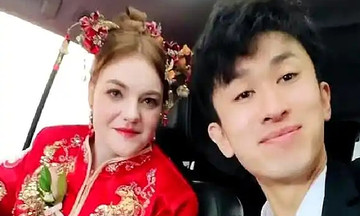Mitzi Bockmann, an American life coach, highlights 5 often overlooked signs of emotional infidelity.
Sharing secrets.
Emotional infidelity often begins with seemingly harmless conversations. A woman reconnects with a male friend after many years. She confides in him about her burdens, and he reciprocates, sharing similar feelings. This emotional resonance leads to increased communication, revealing deeper secrets they feel uncomfortable or unwilling to share with their spouses. They find solace and understanding in each other that their long-term partners seem unable to provide. As trust and connection grow, they turn to each other for comfort and companionship. What started as friendship subtly replaces the emotional role of their spouses.
 |
Illustrative photo: Shutterstock |
A daily desire to connect.
As the relationship deepens, the need for communication increases. Brief hallway chats evolve into coffee dates, lunches, and even after-work drinks. The woman feels a thrill when his name appears on her phone. She grows anxious without his messages, constantly wondering about his whereabouts and thoughts. Weekends without communication feel empty. This excitement transcends friendship. A 2018 study in Perspectives on Psychological Science suggests it signifies a shift in emotional investment away from the current relationship.
Preoccupation with the other person.
The stronger the emotional bond, the harder it becomes to focus on other aspects of life. The woman in the example finds herself thinking about her male friend upon waking, choosing outfits to impress him, and avoiding colleagues during lunch breaks to meet him privately. Even during family dinners, her mind replays their conversations. These thoughts are no longer just friendly; they become preoccupations, sometimes obsessions. A 2000 study by Morgan Proulx of Syracuse University indicates that constantly thinking about someone else, especially replaying past moments or eagerly anticipating future interactions, signals excessive emotional investment outside the marriage.
Secrecy from one's spouse.
Initially, the woman told her husband about her conversations with her male colleague. But as they became more intimate and personal, she stopped. She began lying about her lunch companions, text messages, and reasons behind them. She concealed things she once shared freely, widening the gap between her and her husband while deepening her connection with the colleague. A simple rule applies: if you hide a relationship from your spouse, you're likely engaging in infidelity. A 2023 study in the American Medical Journal, "Love and Infidelity: Causes and Consequences," reveals that deliberately concealing conversations or emotions with someone of the opposite sex, especially content one's partner shouldn't know, signifies more than just friendship. This secrecy often stems from guilt, fear of conflict, or the desire to maintain both relationships.
Developing feelings, despite denial.
This final sign often arrives subtly yet undeniably. After intimate conversations, the woman finds herself attracted to her male friend. Initially, she dismisses it as fleeting, a temporary misinterpretation. But the feeling intensifies over time. She notices his every action, seeks excuses for physical contact, like touching his hand. Each touch evokes emotions she hasn't felt with her husband in years. Though physically intimate, the romantic attraction grows, catalyzing emotions toward an uncontrollable direction.
Nhat Minh (Theo Yourtango)












